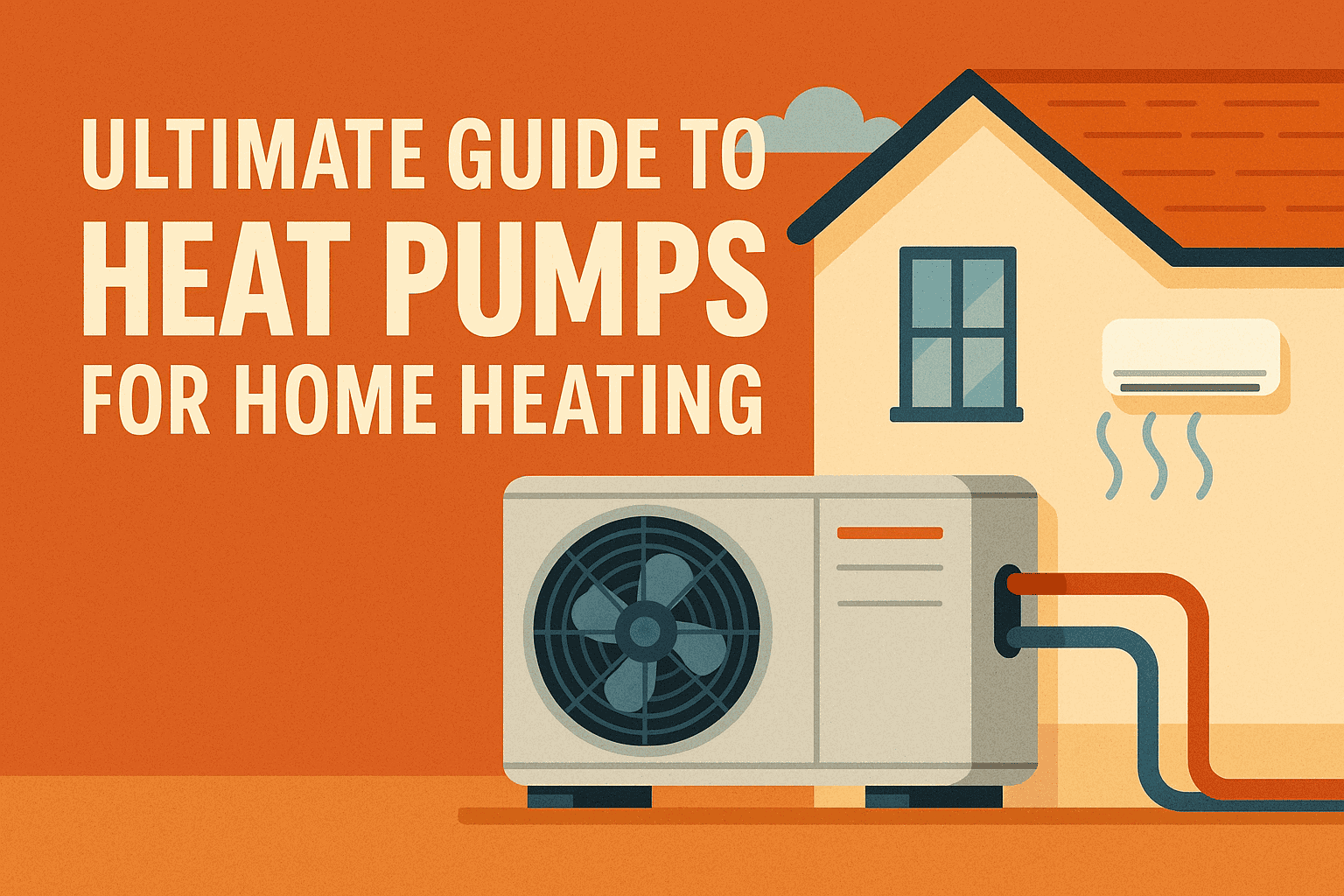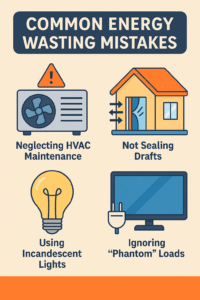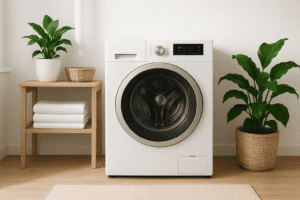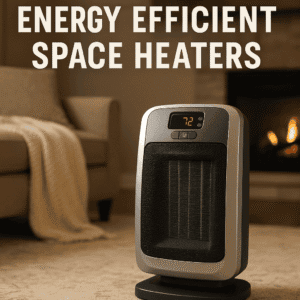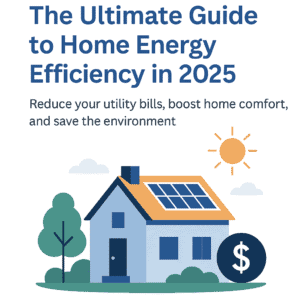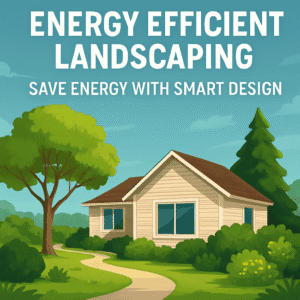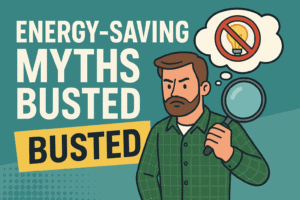Ultimate Guide to Heat Pumps for Home Heating
Discover the Future of Home Heating with Energy-Efficient Heat Pumps
If you’ve ever cringed at your winter energy bill or wondered if there’s a smarter, more sustainable way to heat your home, you’re not alone. As energy costs continue to rise and climate awareness grows, homeowners around the world are turning to home heat pumps as the ultimate solution. But what exactly are heat pumps? How do they work? And most importantly, are they worth the investment in 2025?
This ultimate guide to heat pumps for home heating will walk you through everything you need to know, from the basic mechanics to real-world savings, government incentives, and how to choose the best system for your home. Whether you’re a seasoned eco-warrior or just starting your energy-efficiency journey, this guide will empower you with practical tips and expert insights to make a confident, cost-effective decision.
By the end of this post, you’ll learn:
- What home heat pumps are and how they function year-round.
- Different types of heat pumps and which one is right for your home.
- Pros, cons, installation costs, and expected savings in 2025.
- How heat pumps compare to gas, electric, and oil heating systems.
- How to maximize your efficiency with smart thermostats, insulation, and more.
- Frequently asked questions answered in simple terms.
- How heat pumps tie into your broader home energy efficiency strategy.
So grab a warm drink, get comfy, and read on because this might just be the smartest energy decision you’ll make this year.
What Is a Home Heat Pump and How Does It Work?
A home heat pump is a highly efficient heating and cooling system that transfers heat rather than generating it. Instead of burning fuel, it uses a small amount of electricity to move heat from one place to another.
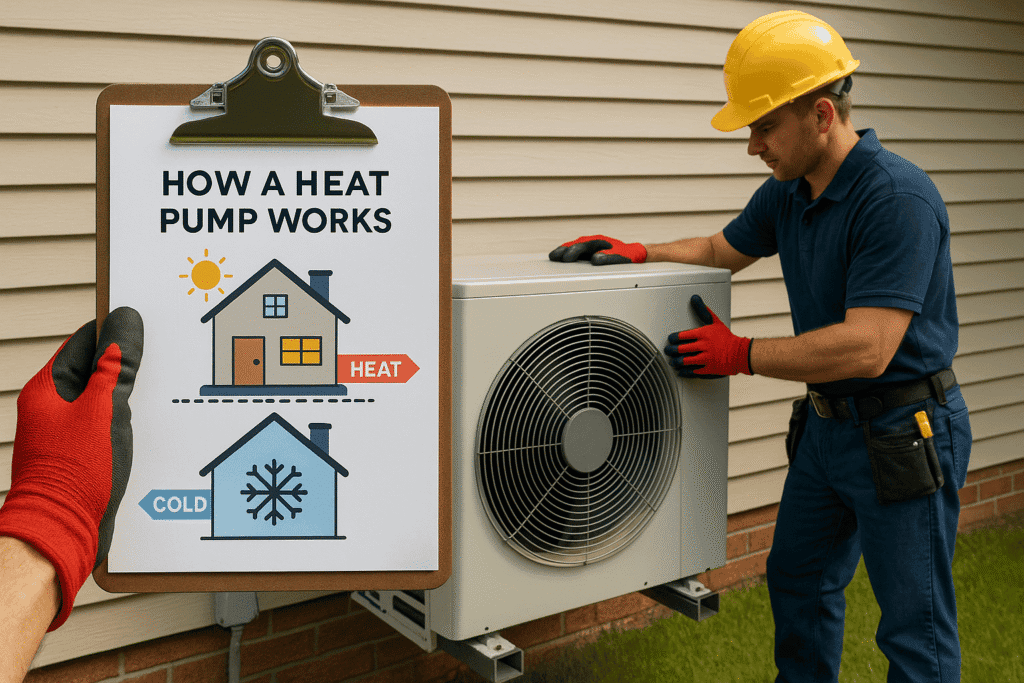
Key Components of a Heat Pump
- Outdoor Unit (Compressor/Condenser)
- Indoor Unit (Air Handler or Furnace Backup)
- Refrigerant Lines
- Expansion Valve
How It Works
In winter, it extracts heat from the outside air (even cold air) and transfers it indoors. In summer, it reverses the process, pulling heat out of your home and expelling it outdoors, just like an air conditioner.
✅ This process makes heat pumps incredibly energy efficient compared to traditional systems.
Want to learn more about reducing heating inefficiencies? Read our guide on Energy Wasting Mistakes.
Types of Home Heat Pumps
Choosing the right heat pump depends on your location, budget, home layout, and energy goals.
1. Air Source Heat Pumps (ASHP)
Most common for residential use. They draw heat from outdoor air.
- ❄️ Effective down to -15°C
- 🔌 Affordable installation
- ♻️ Suitable for moderate climates
2. Ground Source (Geothermal) Heat Pumps
Extract heat from the earth using underground pipes.
- 🌎 Higher efficiency
- 💰 Higher upfront cost
- 🏠 Best for long-term investment
3. Ductless Mini-Split Heat Pumps
Great for homes without ductwork.
- ✅ Room-by-room control
- 🔇 Ultra-quiet operation
- 💸 Lower installation than full HVAC systems
4. Hybrid Heat Pumps
Combine a traditional furnace with a heat pump for extreme cold.
Combine with a smart home system from our Best Smart Home Devices post for optimal control.
Heat Pump vs Traditional Heating Systems: A Cost Comparison
| System Type | Efficiency (%) | Annual Cost (avg) | CO₂ Emissions | Maintenance |
|---|---|---|---|---|
| Gas Furnace | 80–95% | $1,200 | High | Medium |
| Electric Heater | 100% | $1,500+ | Medium | Low |
| Oil Heating | 70–85% | $1,800 | High | High |
| Heat Pump | 300–400% | $500–$1,000 | Low | Low |
Pros and Cons of Heat Pumps
✅ Benefits
- Energy-efficient (up to 4x more than traditional heaters)
- Heating + cooling in one unit
- Lower carbon footprint
- Long lifespan (15–20 years)
- Safe (no combustion)
❌ Drawbacks
- High initial cost ($4,000–$12,000+)
- Less efficient in very cold climates without backup
- May require home insulation upgrades
Pair it with weatherproofing techniques from our DIY Weatherproofing Guide for best results.
Installation and Cost Breakdown in 2025
- Air Source Heat Pump: $4,000–$7,000
- Ground Source Heat Pump: $10,000–$25,000
- Mini-Split System: $2,000–$5,000 per unit
Factors That Affect Pricing
- Home size and layout
- Climate zone
- Ductwork requirements
- Brand and SEER rating
- Government rebates
Can You Get Government Incentives in 2025?
Yes! Many regions now offer tax credits and rebates for installing energy-efficient systems.
- 🇺🇸 USA: Federal tax credit up to 30% (Inflation Reduction Act)
- 🇬🇧 UK: Boiler Upgrade Scheme (£7,500 grant)
- 🇨🇦 Canada: Greener Homes Grant
- 🇦🇺 Australia: STCs (Small-scale Technology Certificates)
Check with your local utility or government site to see what applies.
Best Brands and Models to Consider
| Brand | Notable Model | Efficiency | Warranty |
|---|---|---|---|
| Mitsubishi | Hyper-Heating H2i | High | 12 years |
| Daikin | Aurora Series | High | 10 years |
| Trane | XV20i | Ultra High | 12 years |
| Carrier | Infinity 24 | Ultra High | 10 years |
| Bosch | Inverter Ducted Split | Moderate | 10 years |
How to Maintain Your Heat Pump for Maximum Lifespan
- Clean filters every 1–3 months
- Schedule annual professional service
- Keep outdoor unit clear of debris/snow
- Use programmable or smart thermostats
- Seal and insulate ducts
Smart Thermostats + Heat Pumps = Ultimate Efficiency
Pairing your heat pump with a smart thermostat allows automated schedules, zoning, and real-time performance tracking.
Check out our post on How Smart Thermostats Save You Money to learn more.
Home Insulation and Heat Pump Synergy
A heat pump is only as good as your home’s insulation. Before investing, inspect:
- Attic insulation
- Window sealing
- Weather stripping
- Floor insulation
Learn how to DIY these with our Home Energy Efficiency Guide 2025.
Who Should Consider a Heat Pump?
- Homeowners in mild to moderate climates
- Anyone replacing old HVAC systems
- New home builds
- Green-conscious households
- Those looking for long-term savings
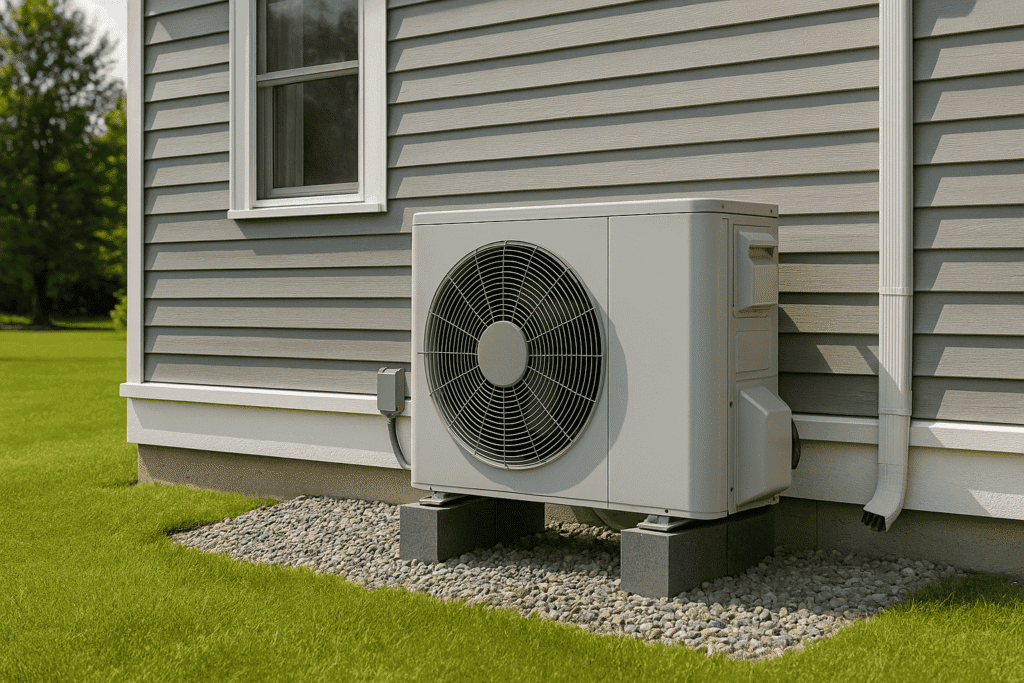
FAQ: What People Also Ask About Home Heat Pumps
What is the average lifespan of a heat pump?
Most systems last 15–20 years with proper maintenance.
Are home heat pumps noisy?
No. Modern models are very quiet—similar to a refrigerator.
Do heat pumps work in cold climates?
Yes, especially newer models and hybrid systems.
Can I install a heat pump in an old house?
Yes, though you may need insulation or duct upgrades.
Is a heat pump better than a furnace?
It depends on your climate. In most cases, yes—it’s more efficient and eco-friendly.
Conclusion: Why Home Heat Pumps Are the Future of Smart Heating
Choosing home heat pumps in 2025 isn’t just about saving money, it’s about building a comfortable, energy-smart, and future-ready home. With their ability to heat and cool efficiently, reduce your carbon footprint, and qualify for valuable incentives, heat pumps are one of the best investments a homeowner can make.
From the simple air-source models to high-efficiency geothermal systems, there’s a solution for nearly every home and climate. Combined with smart thermostats, improved insulation, and an overall strategy for home energy efficiency, heat pumps can drastically reduce your utility bills and environmental impact.
Whether you’re upgrading an outdated system or starting from scratch, now is the time to invest in home heat pumps. The technology is mature, the incentives are generous, and the savings are real.
So start your journey to smarter heating today. Your wallet, your comfort, and the planet will thank you.
Interested in Monitoring your Energy Usage? Here’s a comprehensive guide on Energy Monitoring Systems.
This post was on Ultimate Guide to Heat Pumps for Home Heating in 2025. Energy Efficient Heating Systems, Air Source Heat Pump, Best Heat Pump Brands, Heat Pump Cost 2025.

